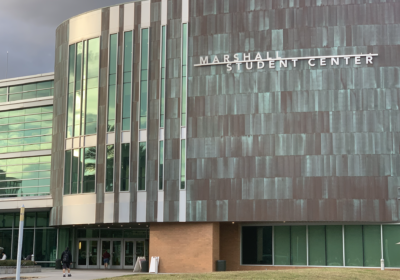New contract to benefit graduate assistants

Graduate assistants, the unsung heroes of writing lesson plans and grading papers, will likely receive more recognition from the university soon — at least financially.
The USF Graduate Assistant Union (USF GAU) is voting today on the 2014-17 contract that university negotiators approved at the collective bargaining meeting last week.
“We think overwhelmingly that this bargaining session was a positive outcome for the GAs on campus,” said Megan Flocken, USF GAU co-president and a graduate assistant (GA) for the philosophy department.
If the union members pass the contract, and the Board of Trustees also does so later in the month, then the new provisions will include significant changes, including support for union operations, unpaid leave for family medical emergencies and a one-time bonus.
The university agreed to a one-time, tax-free bonus of $500 for all GAs who work at least 20 hours a week.
“It will really help us through the holiday season,” Flocken said. “Any amount of money in the pocket is a great victory.”
GAs who work fewer hours would still receive a prorated bonus. For example, a person working 10 hours a week would receive $250.
Those who work more than 20 hours, however, would not receive more than $500.
During the first bargaining meeting in summer, the USF GAU demanded a $700 stipend increase for full-time GAs. Instead, the university offered the bonus.
Those at the master’s level are currently paid $10,580 and those at the doctorate level earn $11,855.
Negotiators also agreed to six weeks of unpaid family medical leave, including time off in the event of an emergency involving a dependent or spouse.
“Say if someone had a baby in the middle of the semester, they might lose not only their appointment but also their health insurance,” Flocken said. “Without this written, it placed GAs in an incredibly precarious position.”
GAs do not currently have any unpaid leave options, though they are allowed five days of paid leave.
In addition, the university would allow GAU personnel more time to conduct union business without infringing on the time of their respective college department.
“The administration showed us that they will support the union so that GAs don’t have to choose between their professionalization in their own academic discipline or working for the union,” Flocken said. “We can do both.”
Another revision would ensure that health insurance — for GAs working at least 10 hours a week — is fully covered, and rising premiums are continually matched.
The total cost to the university for the increased coverage for more than 2,000 graduate assistants would be roughly $365,000, according to Kofi Glover, USF vice provost of Human Resources and Facilities.
“It’s one last thing we don’t have to bargain every year for,” Flocken said.
Language was also included to make sure GAs enrolled in health care would not accidently lose coverage at the start of a new semester.
The university also agreed to give an official office space for the union.
“We were nowhere. We were basically meeting in different GA department spaces across campus wherever we could find them,” she said. “That made it incredibly difficult to hold office hours.”
The university agreed to most of this year’s demands. During collective bargaining, Glover said that every time the GAU makes demands, the university gives more than asked.
“The point I’m trying to make is that the university is very conscious to invest in its graduate students,” he said. “We go beyond what you ask for and what your expectations are.”
“You should thank me personally,” Glover joked at the end of negotiations.
Next year’s negotiations will begin in the early summer, where the GAU may bring three issues for negotiation.
An increased stipend is always an obvious request, Flocken said. The demand to reduce or eliminate fees, such as when signing up for classes, may also be brought back to the table, as the university rejected it this year.
“We’ll listen to our members to hear what issues they care about,” Flocken said. “We work from the bottom up.”






